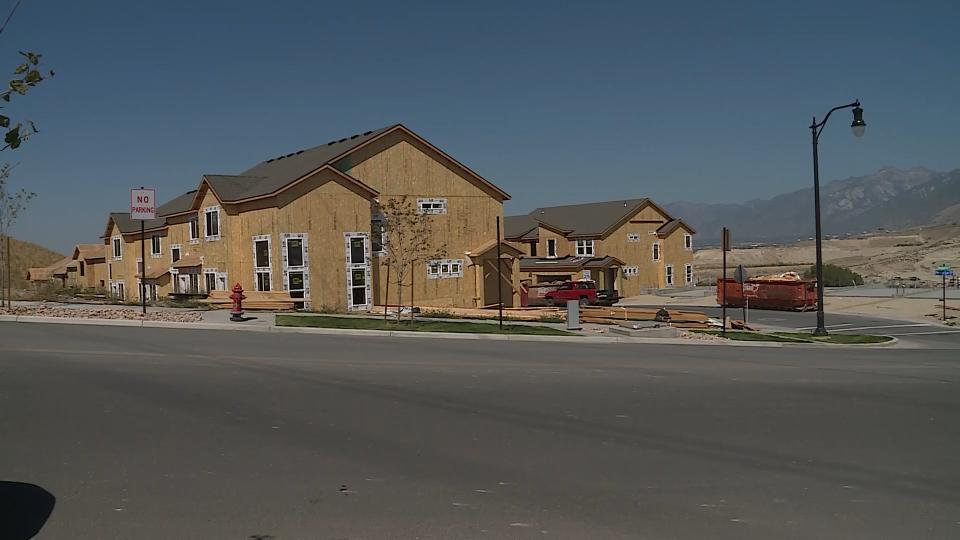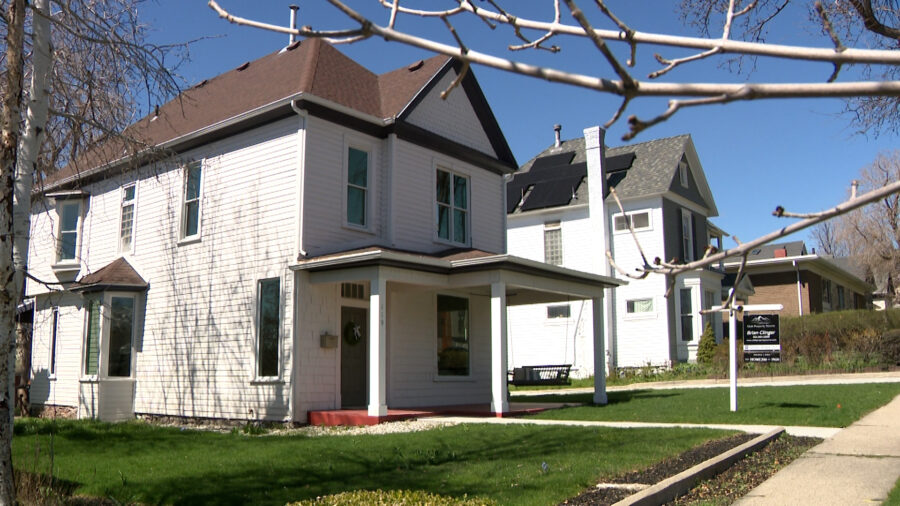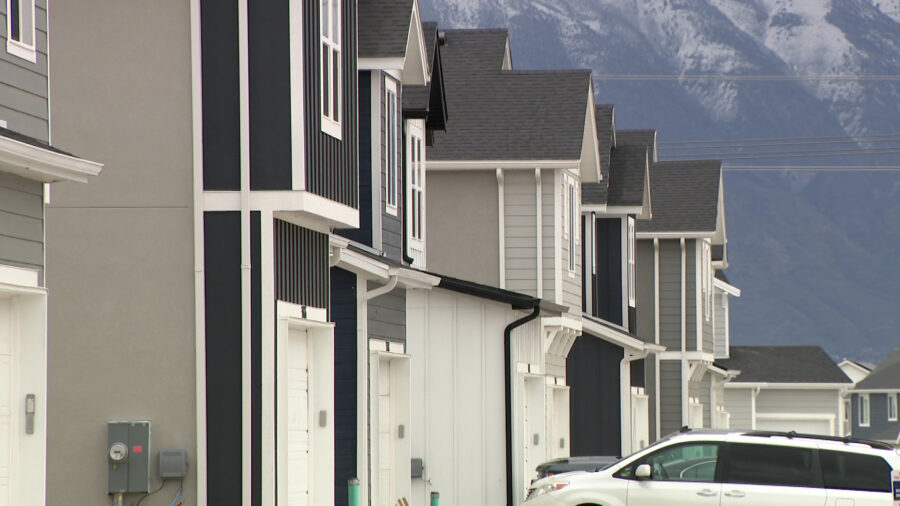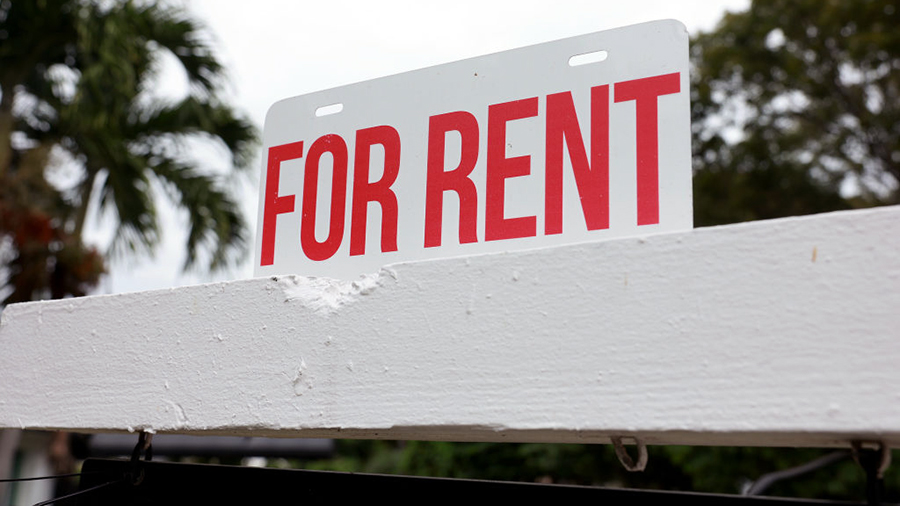The economy’s great, but Utahns still ask: ‘Where’s my raise?’
May 21, 2018, 11:28 PM | Updated: Jul 13, 2018, 5:33 pm
SALT LAKE CITY, Utah – Amid Utah’s record economic boom and strong job growth, many Utahns are asking: “Where’s my raise?”
“We’re working hard, we’re doing everything we can, but it’s not enough,” Taylorsville resident Angela McKinnon said. “Sometimes you end up feeling stuck because I’ve thought through every option a million times.”

Now that her rent is increasing every six months, Angela McKinnon says her paycheck is not keeping pace.
As a single mom working full time at a customer service call center, McKinnon says the monthly money crunch can be overwhelming.
“We don’t have cable, we don’t have a fancy car,” she said. “The things that I’m paying for are things that I have to have. There’s nothing to cut out.”
Even after advancing after 10 years on the job, she says her yearly raises aren’t keeping pace with the rising cost of living.
“I don’t think it’s possible to keep up with the way everything is increasing,” she said. “I’m not spending my money on fancy things.”
Recently, McKinnon’s landlord switched to only allowing six-month leases.
“So that means twice a year the rent is going up,” she said.
The struggle for some Utahns to keep up with the rising cost of living, especially the sharp increases in housing costs, stands in sharp contrast to the overall positive economic landscape.

Utah ranks first in the nation for job growth, according to the Utah Department of Workforce Services.
“Our job growth has been strong and steady for quite some time,” said Carrie Mayne, the chief economist for the Utah Department of Workforce Services. “Wages are not growing at the rate that housing prices are, and so you start to price people out of homes.”
The latest economic report from the Utah Department of Workforce Services shows the Beehive State ranking first in the nation for job growth for the second month in a row. What’s more, the unemployment rate sits at a very low 3.1 percent.
While the average wage in Utah is increasing, Mayne says wage growth has lagged during the past nine years of economic expansion.
“It hasn’t been very steady, on average, it hasn’t been as strong as we expect it to be,” she said.

The most recent economic report to the governor put the average wage in Utah at $47,012.
The average wage in Utah grew to $47,012 in 2017, according to the latest Utah Economic Report to the Governor. That’s a “healthy” increase of 5.3 percent from the year before. However, the wage forecast for this year is for “moderately lower levels of growth,” the report reads.
Those with careers in technology, construction and healthcare are seeing increases in pay, according to Mayne, because of a shortage of workers in those industries.
Normally, as unemployment drops, wages increase. That predictable pattern happened late in this current economic expansion and puzzled economists.
“In the early stages of the recovery that was just a question for us. The unemployment rate is coming down—where is the wage growth?” said Juliette Tennert, director of economics and public policy at the University of Utah’s Kem C. Gardner Policy Institute.

Wages are increasing in Utah for workers in construction, technology, and healthcare.
The issue of wage stagnation is happening nationwide. Possible explanations include lower-paid workers replacing retiring baby boomers, or a possible shift in the mix of jobs since the Great Recession, or working-age people re-entering the job market, who aren’t counted in the unemployment rate, and preventing upward pressure on wages.
“Finally, we’re seeing this return to wage growth but it’s certainly not at the pace that we’ve experienced,” Tennert said. “When we have a very low unemployment rate, we expect there to be lots of upward pressure on wages because businesses need to fill positions.”
There’s another post-recession phenomenon that could be keeping take-home pay from growing: companies playing it safe by handing out one-time bonuses or other perks instead of a permanent raises.
“It’s a safer way for them to incentivize their workers,” Mayne said. “If they increase your wage they’ve locked themselves in. It’s very difficult to pull back on a worker’s salary.”
While the extra cash is great for families and the economy, it’s not the same as a salary bump.
“You don’t want to commit those funds to a mortgage because they are not guaranteed on an ongoing basis,” Tennert said.
Economists say workers who feel they are past due for a raise should act now and take advantage of the tightening labor market.
“The economic climate is such that it’s in the favor of the worker,” Mayne said. “Now is the time to approach your employer; now is the time to apply for the manager position that you’ve never applied for before; now is time to look at competitor companies and see if they are paying more.”
The bottom line, if you wait for the economy to slow down to seek a higher salary, it could be too late.












